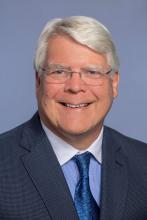Lawmakers, physicians, and advocates alike have hailed a relaxation of telehealth rules under the COVID-19 emergency declaration, and they’d like things to stay this way.
Regulators previously restricted telemedicine use “by insisting that you could only see patients in the state you’re licensed in, by not reimbursing as widely for telehealth, and by not allowing us to prescribe controlled substances. They also didn’t allow us to see patients on the phone. So, there’s very good reasons to keep those regulations permanently relaxed,” said Peter Yellowlees, MBBS, MD, a professor of psychiatry and chief wellness officer at the University of California, Davis.
In his view, changes should take place in four key areas:
- Licensing. “Traditionally, state medical boards have been very insistent that clinical psychiatrists license in the state the patient resides in. This means physicians must have licenses in many different states. It’s very restrictive, because physicians can’t follow patients from one state to another. Under COVID, we can do this, but physicians want these licensing changes to be made permanent.”
- Reimbursement. “In the past, federal regulators have only allowed reimbursement for telemedicine in very specific, defined rural areas and specified clinical environments. This rule has since been relaxed, allowing us to see patients anywhere, especially in their homes. This is another area that should become permanent. Payers should continue to pay telehealth services on par with in-person visits.”
- Telephony. “Psychiatrists and other physicians haven’t been traditionally paid for telephone visits. But there’s no doubt that telephone follow-up visits can be very beneficial, so while I wouldn’t personally see a new patient on the phone, I now follow up with them on the phone once I have gotten to know them, and this works well.”
- Prescribing. The Ryan Haight Online Pharmacy Consumer Protection Act of 2008 was introduced to stop overseas pharmacies prescribing narcotics. “It was very successful, but as a side effect, it stopped most physicians from prescribing controlled substances on video. With COVID, we can now do this. For psychiatry, this is very important because it means we can use video to treat people for addictions with medications like buprenorphine and [prescribe] stimulants for children with ADHD. The U.S. Drug Enforcement Administration should finalize regulations for the Ryan Haight Act to allow for the prescribing of controlled substances via telehealth without a prior in-person exam.”
The American Psychiatric Association has called for an extension of the telehealth waiver authority under COVID-19 beyond the emergency declaration to study its impact. It will continue to advocate to allow for telephone-only telehealth to be reimbursed at the same rate as live audio-video, said a spokesperson. “We also will continue to advocate for the removal of geographic and originating site restrictions in Medicare, which prevent Medicare patients from being seen in the home,” with some exceptions, the spokesperson said.
The APA has also issued guidance to practitioners seeking clarity on telehealth coverage and COVID-19.


